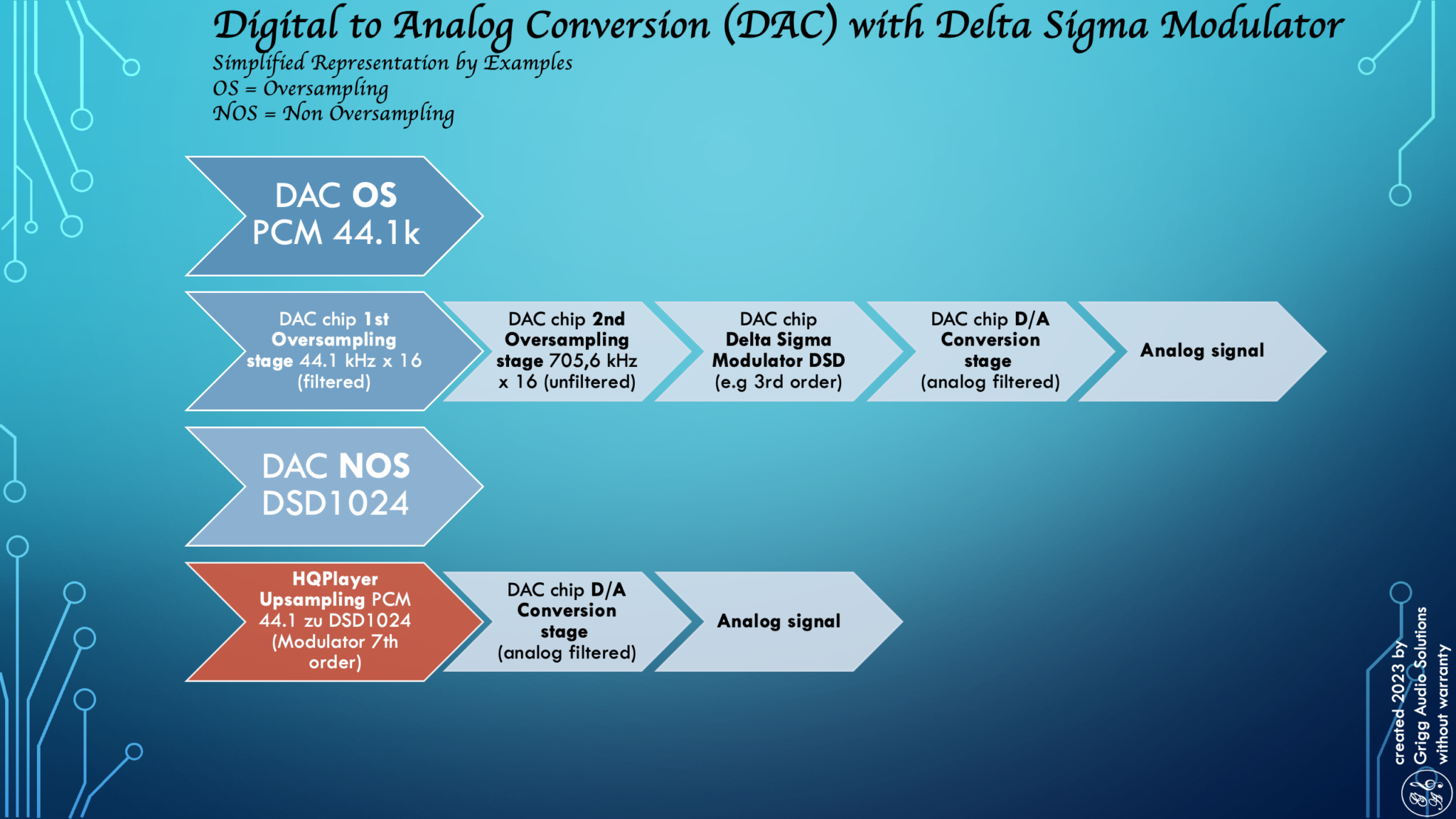Lately there have been a number of posts once again reigniting the endless debates of analog versus digital. There was also a new crop of digital devices that debuted at the Munich show this year. All those topics are subjects for debates. But what I don’t believe can be debated, but we shall see, is that high-rate DSD512x48 and DSD1024x48 with HQPLAYER 5 is the current cutting edge of digital playback. If someone wants to know how good digital playback can be at this time, and in the foreseeable future, one must look no further than HQPLAYER 5 outputting DSD512x48 or DSD1024x48 to a chipless DSD digital to analog converter. It gets no better than this, the issue is that very few have heard it or had a chance to compare it.
I would venture to say that very few people on this forum have heard HQPLAYER outputting DSD512x48 or DSD1024x48 to a chipless DSD digital to analog converter.
Who on this forum, other than myself, has heard HQPLAYER outputting DSD512x48 or DSD1024x48 to a chipless DSD digital to analog converter?
The Halo May counts but more interesting would be comments from those that have heard it the T+A DAC200 or T+A SD 3100 HV Reference streaming DAC.
I currently have four DAC’s that can process native DSD512x48 or higher rates from HQPLAYER, which has allowed me to form this opinion.
Welcome any comments from those who have heard HQPLAYER outputting DSD512x48 or DSD1024x48 to a chipless DSD digital to analog converter, and how it compares to the WADAX, dCS, MSB and Aries Cerat playback quality. These dacs I believe are all limited to DSD256. The LampizatOr Horizon can playback DSD512 but it is my understanding that details for the off the shelf dac IC chip solution used have not been disclosed or any details to refute the use of an off the shelf IC chip dac have not been forthcoming.
I would venture to say that very few people on this forum have heard HQPLAYER outputting DSD512x48 or DSD1024x48 to a chipless DSD digital to analog converter.
Who on this forum, other than myself, has heard HQPLAYER outputting DSD512x48 or DSD1024x48 to a chipless DSD digital to analog converter?
The Halo May counts but more interesting would be comments from those that have heard it the T+A DAC200 or T+A SD 3100 HV Reference streaming DAC.
I currently have four DAC’s that can process native DSD512x48 or higher rates from HQPLAYER, which has allowed me to form this opinion.
Welcome any comments from those who have heard HQPLAYER outputting DSD512x48 or DSD1024x48 to a chipless DSD digital to analog converter, and how it compares to the WADAX, dCS, MSB and Aries Cerat playback quality. These dacs I believe are all limited to DSD256. The LampizatOr Horizon can playback DSD512 but it is my understanding that details for the off the shelf dac IC chip solution used have not been disclosed or any details to refute the use of an off the shelf IC chip dac have not been forthcoming.
Last edited:

















